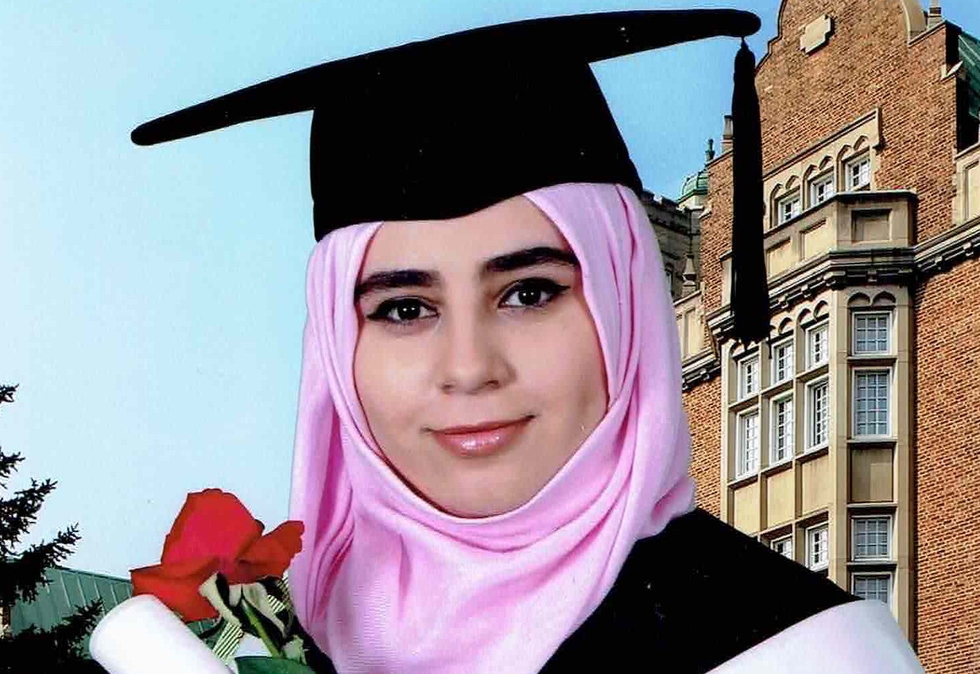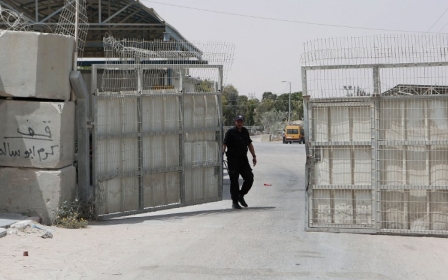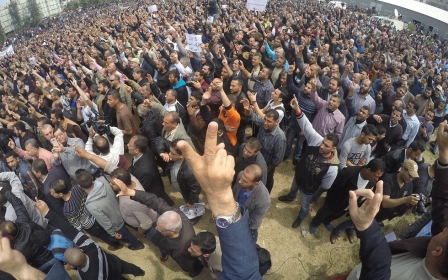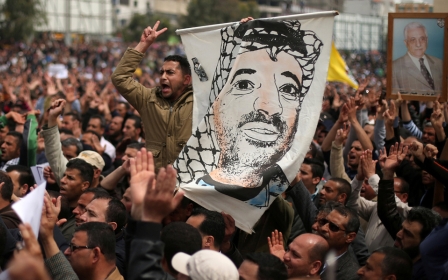Pregnant Canadian woman blocked from leaving Gaza Strip

TORONTO, Canada – Hadi Eid knows that time is of the essence.
But the Palestinian-Canadian father is no closer to securing his daughter’s departure from the Gaza Strip, despite desperate calls for the Canadian government to intervene on her behalf.
The situation is even more critical because Bissan Eid, 24, is pregnant, and expected to give birth to her first child in early May.
“We don’t have a lot of time,” Eid told Middle East Eye on Monday, explaining that his daughter and his entire family is getting increasingly anxious as the child’s due date fast approaches.
“The doctors told her that it’s preferable for her to give birth outside Gaza because [in] Gaza there is a lack of medical materials, [and] the quality in medical hospitals there is not so high,” he said.
But after Bissan travelled to Gaza last June to get married and visit relatives, she has not been able to leave.
Israeli officials have not granted her the necessary permit to exit through the Erez border crossing, which separates the coastal Palestinian enclave from Israel proper. She had planned to then cross into Jordan and fly back to Canada from there, her father said.
“The answer wasn’t yes, it wasn’t no, I don’t know what happened there, but they [the Israeli authorities] didn’t contact her,” Eid said.
Israel restricts Palestinian movement
The Eids are originally from the Gaza Strip.
Eid said he came to Canada in 2000, and got Canadian citizenship four years later. In 2005, the rest of his family, including Bissan, received Canadian citizenship, as well.
But Israel imposes tight restrictions on freedom of movement for Palestinians, even those holding foreign passports, especially for travel in and out of the Gaza Strip.
Israeli restrictions on travel to and from Gaza were first introduced in the 1990s, according to Gisha, an Israeli legal centre, and Israel required Palestinians to secure individual exit permits to leave the coastal territory.
After Hamas was elected to power in 2006, Israel put in place an even tighter closure policy on Gaza, and Palestinian travel through Erez, the main border crossing separating Israel and northern Gaza, dramatically decreased.
Today, about 4,000 Palestinians, mainly businesspeople and medical patients, cross through Erez every month, compared to 26,000 Palestinians who entered Israel from Gaza every day in the summer of 2000, Gisha estimates.
Egypt also maintains strict control over the border crossing at Rafah, in southern Gaza, and only opens the crossing for a limited period of time every few months.
“It takes one hour from Erez crossing to Jordan, not more. It’s not complicated,” Eid said about what it would take to get his daughter on her way back to Canada.
“Israel every time when you talk with them, they [say] they are doing that under the pretext that this is for security reasons. I don’t think that a pregnant woman, [a] student, will make any security issue for Israel,” he said.
Canada urged to take action
Tadamon!, a Montreal-based group working in support of Palestine and human rights issues, called on Canada to work with Israeli and Jordanian officials to secure Bissan’s exit permit.
“Canada’s Liberal Prime Minister Justin Trudeau has made very public pronouncements about diversity being Canada’s ‘strength’ and the fundamental humanity of all Canadians despite origin or religious background,” the group said in a statement.
“We are calling on the Liberal government and Trudeau to take action in [Eid’s] case so that she may receive the support she urgently needs.”
The Concordia Student Union also launched a petition, to be delivered to Trudeau and Montreal Mayor Denis Coderre, to bring Bissan home. By Monday morning, it had about 450 signatures.
Bissan, who holds a bachelor’s degree in science and civil engineering, had completed the first year of a master’s degree in civil engineering from Concordia University before being barred from returning to start her second year last fall.
The Canadian government said it is aware of reports that a Canadian citizen needs help leaving Gaza.
“Consular officials stand ready to assist and provide updated information on how to leave the region,” John Babcock, a spokesperson for Global Affairs Canada, told MEE in an email.
Babcock added, however, that Canada advises against all travel to Gaza due to the ongoing conflict and the prospect of armed violence there, and pointed out Ottawa’s “limited ability to provide consular services to Canadians, including assistance with departure”.
But according to Eid, if Canada does not get involved, it will demonstrate that not all Canadians are treated equally.
“Why are they treating Palestinians, or Canadians who are originally from Gaza, [this way]? This is officially discrimination and the government should tell Israel that Bissan, or any other Canadian originally from Gaza… are Canadian now,” he said.
“If Canada doesn’t do that, it’s like they approve [of] discrimination against Canadians.”
He added that if his daughter is forced to give birth in Gaza, she would then face a new and equally difficult bureaucratic process to get a Canadian passport for her child, and both their exit permits.
That is why he said it is so important for Canada to intervene. “I know that Canada can do it if they want to do it.”
Middle East Eye propose une couverture et une analyse indépendantes et incomparables du Moyen-Orient, de l’Afrique du Nord et d’autres régions du monde. Pour en savoir plus sur la reprise de ce contenu et les frais qui s’appliquent, veuillez remplir ce formulaire [en anglais]. Pour en savoir plus sur MEE, cliquez ici [en anglais].




